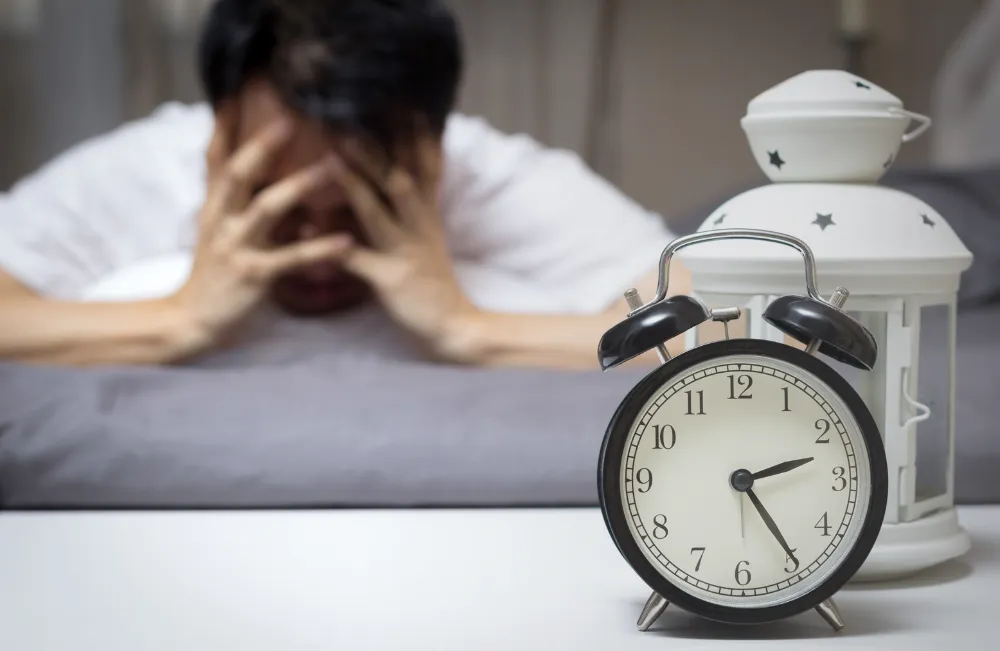Sleep Better After Smoking Cessation, St. Louis, MO
The Connection Between Sleep and Health
The decision to quit smoking is a crucial step towards improving your health and overall well-being. Many people focus on the physical benefits of quitting smoking but often overlook the significant impact on their sleep. In this article, we will explore the deceptive nature of nicotine, the importance of sleep for overall health, and how smoking cessation can lead to better sleep and well-being.
Nicotine's Deceptive Nature
Many smokers mistakenly believe that a cigarette before bedtime can help them relax. However, nicotine, the addictive substance in cigarettes, is a stimulant that can hinder your ability to fall asleep and stay asleep. Nicotine affects sleep in many ways, it can lead to frequent awakenings, less restful sleep, and sleep disorders such as insomnia and sleep apnea.
The Importance of Sleep and the Dangers of Sleep Deprivation
Why Good Sleep Matters
Adequate sleep is essential for your overall health and well-being. The Centers for Disease Control condsiders insufficient sleep a public health concern. According to the CDC, about 1 in 3 adults in the United States do not get enough sleep regularly. Sleep plays a vital role in memory consolidation, cognitive function, immune system support, and emotional regulation. When you're well-rested, you're more likely to be productive and enjoy a better quality of life.
The Consequences of Poor Sleep
Lack of sleep can have severe consequences on your physical and mental health. Chronic sleep deprivation can contribute to weight gain, increased risk of diabetes, heart disease, and weakened immune function. Additionally, it can impair your cognitive abilities, emotional well-being, and even increase the likelihood of accidents.

Reaping the Benefits of Smoking Cessation: Improved Sleep and Health
The Path to More Restful Sleep
After you successfully quit smoking, you'll likely notice improvements in your sleep quality. As nicotine leaves your system, your body can better regulate its sleep-wake cycles, leading to less sleep disturbances and more restorative sleep. You'll wake up feeling refreshed and ready to tackle the day.
Breathing Easier During the Night
Smoking can cause or worsen respiratory problems, making it difficult to breathe at night. By getting ride of your tobacco dependence, you can reduce inflammation and irritation in your airways, resulting in more comfortable and uninterrupted sleep.
Staying Focused On Your Goal
One incredible benefit of quitting smoking is the improvement in sleep quality. However, it's essential to remain vigilant and committed to your smoke-free journey, as a smoking relapse can undo the progress you've made in achieving restorative sleep. By maintaining a strong resolve to stay away from cigarettes, you can continue to enjoy the positive impact on your sleep and overall well-being, ensuring you wake up refreshed and ready to tackle the day.
Learn more about our quit smoking program today! - Click Here

FAQ About Sleep, Smoking, and Hypnosis
Q: How long does it take for sleep to improve after I stop smoking?
A: Sleep improvements can vary from person to person. Some individuals may notice improvements within a few days, while others may take several weeks to experience better sleep quality. As your body adjusts to being nicotine-free, you can expect gradual sleep improvements over time.
Q: Can smoking cessation lead to changes in my dreams or nightmares?
A: Yes, when some smokers quit they experience vivid dreams or nightmares, which can cause trouble sleeping at first. This can be a result of nicotine withdrawal symptoms and changes in sleep patterns. These effects typically subside as your body adjusts to being nicotine-free.
Q: Are there any specific techniques or tips to help improve sleep during the initial stages of quitting smoking?
A: Establishing a regular sleep schedule, creating a sleep-friendly environment, and practicing relaxation techniques such as deep breathing, meditation, or progressive muscle relaxation can help improve sleep. Additionally, avoiding caffeine and alcohol close to bedtime and engaging in regular physical activity can promote better sleep quality.
Q: Does smoking electronic cigarettes or using nicotine patches have the same effect on sleep as smoking traditional cigarettes?
A: Electronic cigarettes and nicotine replacement therapy, such as a nicotine patch, deliver nicotine which can still disrupt sleep. However, they may have a lesser impact on sleep compared to traditional cigarettes due to the absence of other harmful chemicals found in tobacco smoke.
Q: Are there any natural remedies or supplements that can help improve sleep after quitting smoking?
A: Some natural remedies and supplements, such as melatonin, valerian root, and chamomile tea, may help promote relaxation and improve sleep. However, it's essential to consult with a healthcare professional before using any supplements to ensure they are safe and appropriate for your situation.
Q: Can quitting smoking affect my circadian rhythm or sleep-wake cycle?
A: Yes, quitting smoking can impact your circadian rhythm as your body adjusts to being nicotine-free. Over time, your sleep-wake cycle should stabilize, leading to more consistent and restorative sleep.
Q: How does smoking cessation impact sleep in individuals with pre-existing sleep disorders?
A: Quitting smoking can improve sleep quality and alleviate symptoms of sleep disorders such as sleep apnea and insomnia. It's essential to consult with a healthcare professional to address any underlying sleep disorders and develop an appropriate treatment plan.
Q: Is there a connection between smoking and snoring or sleep apnea?
A: Yes, smoking can contribute to snoring and sleep apnea by causing inflammation and irritation in the airways. Quitting smoking can help reduce these symptoms and improve overall sleep quality.
Q: How can I create a sleep-friendly environment to support my smoking cessation journey?
A: Ensure your bedroom is cool, dark, and quiet. Use comfortable bedding, and minimize exposure to electronic devices with screens before bedtime. Consider using white noise machines or blackout curtains to block out any potential disturbances. Creating a relaxing bedtime routine, such as reading or taking a warm bath, can also support a better sleep environment.

Discover Mental Impact Hypnosis: Your Solution for Smoking Cessation and Restorative Sleep
Mental Impact Hypnosis, founded by certified hypnotist David Hoffman, helps people quit smoking and overcoming nicotine addiction and improve sleep through personalized hypnosis sessions. Our tailored approach and lifetime service guarantee ensure lasting success on your smoke-free journey.
Take Control of Your Life and Sleep Better
Experience the benefits of smoking cessation, including enhanced sleep quality and overall well-being, with Mental Impact Hypnosis as your partner. Don't wait any longer! Contact us today to begin your journey toward a healthier, smoke-free life and restorative sleep.

